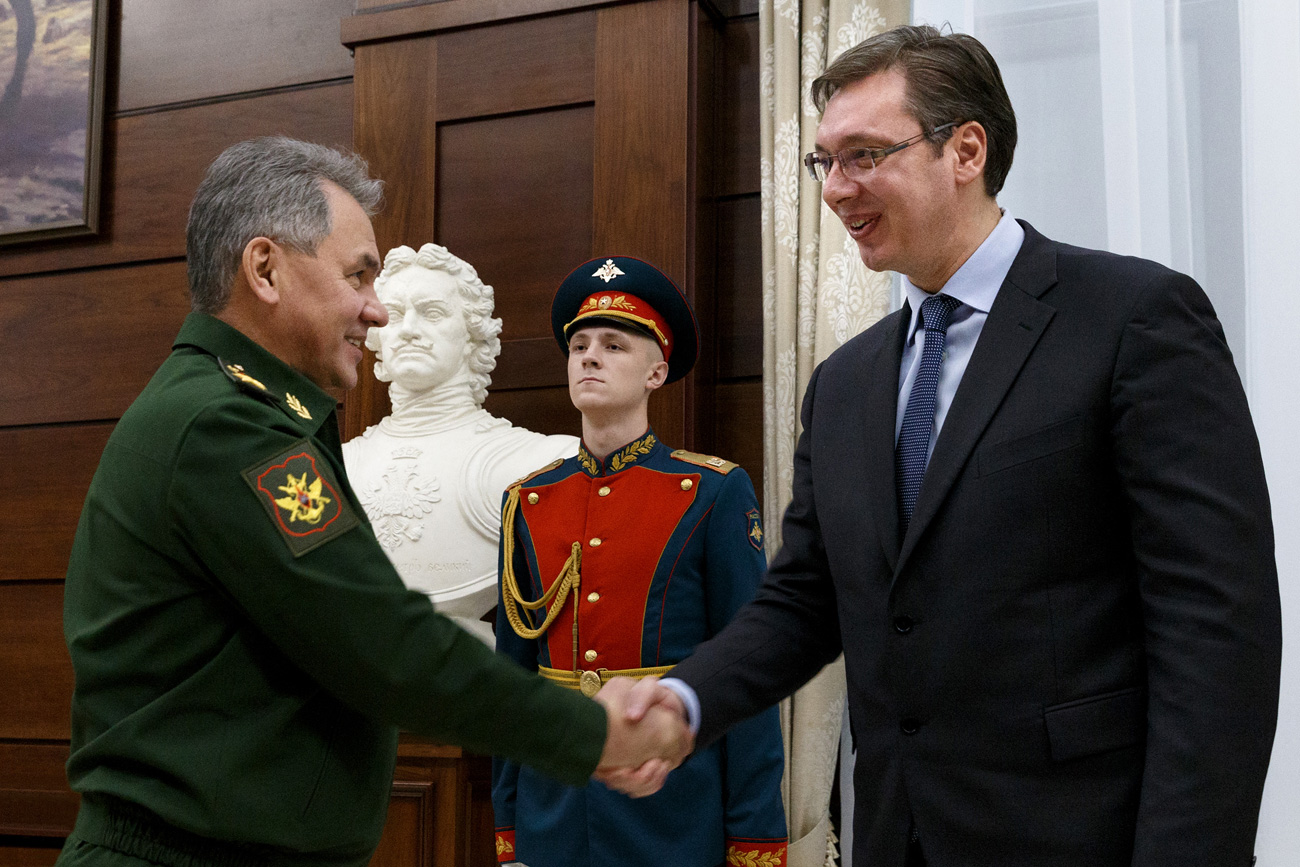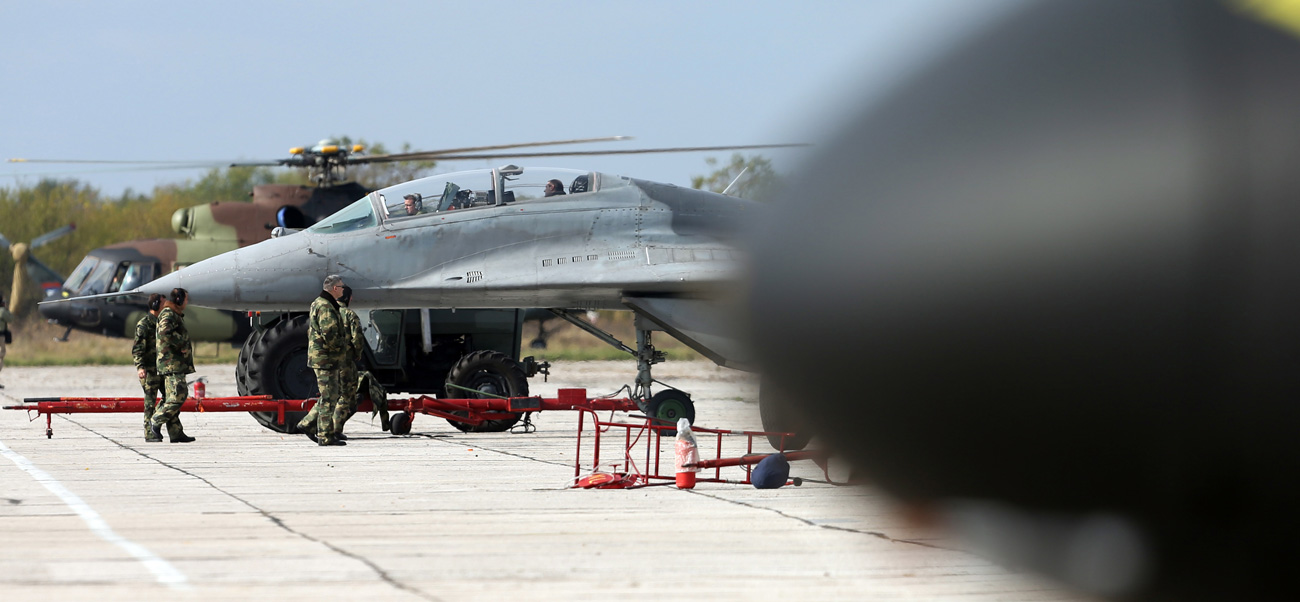
Russian Defence Minister Sergei Shoigu, right, and Serbian Prime Minister Aleksandar Vucic during a meeting in Moscow.
Vadim Savitskii/RIA NovostiSerbian Prime Minister Aleksandar Vucic visited Moscow on December 21 for talks with Russian Defense Minister Sergey Shoygu. Russia decided to supply the Serbian Air Force with six early-build MiG-29 fighter jets from the Russian Defense Ministry's reserves. The aircraft will be delivered in the spring of 2017, after undergoing maintenance checks.
Belgrade will not be paying for the military jets, but will cover the repair and modernization costs to the tune of around $50 million. According to Vucic, paying the full price of the six fighters would have set Serbia back nearly 600 million euros, an extremely challenging sum for the country's budget.
Russia will also deliver to Serbia 30 T-72C tanks and 30 BRDM-2 amphibious armored patrol vehicles. Vucic especially stressed in all his statements during the Moscow visit that there have not been such massive armament deliveries either to Serbia or to the former Yugoslavia in the past 25 or 30 years. The Serbian army has not been upgrading or even repairing some of its armaments for a comparable period of time. In particular, the helicopters operated by Serbia's Air Force and Ground Troops are in urgent need of repair and spare parts.
Belgrade was especially interested in the possibility of acquiring advanced anti-aircraft weaponry from Moscow, including Buk, Buk M2 and Tunguska surface-to-air missile (SAM) systems. According to Vzglyad sources, the portion of the talks which discussed the fighters and armor was conducted in Russian; when it came to discussing the SAM systems, the Serbian delegation switched to their native language, so an interpreter was called in so as not to miss any details.
Potential deliveries of Russian air defense systems to Serbia will not begin until 2018, mainly due to the fact that the Russian defense industry is working overtime on a backlog of earlier orders. On the other hand, Belgrade is not prepared to pay the required 500 million euros immediately, but promises to find the requisite sum in full.
A Balkan arms race was allegedly started by Croatia several years ago: the country began buying increasingly more weapons from the EU and the U.S. Neither Zagreb nor Belgrade officially links the efforts to modernize its army to a possible armed conflict with the neighbor. However, Serbia absolutely must take into account all possible threats to its national security.
The Moscow agreements will hardly rescue the Serbian army in this situation. Serbia's four MiG-29, stationed at Batajnica Air Base, are currently undergoing scheduled maintenance, so the country has in effect found itself without any military aviation. The Serbian Air Force is no longer capable of maintaining constant readiness and patrolling national airspace for purely technical reasons. Training flights with modern aircraft are also impossible.
 Serbian air force's MiG-29 jets during a tactical exercise at the military airport in Batajnica in Belgrade, Serbia / Source: EPA
Serbian air force's MiG-29 jets during a tactical exercise at the military airport in Batajnica in Belgrade, Serbia / Source: EPA
This is why Belgrade welcomed Shoygu's suggestion that the two countries' air forces regularly hold joint exercises. For Serbia, such cooperation is virtually the only chance to keep its military pilots up-to-date.
Possible deliveries of Russian air defense weaponry, in particular Buk SAM systems, are also perceived in this same context in Serbia. Modernization of the national air force should proceed hand in hand with the creation of a modern air defense system. This combination often discourages the adversary, already at the planning stage, from even attempting an offensive.
The Serbian military has yet to come up with a long-term army reform concept; so far the country has been acting on intuition and merely reacting to the strengthening of the Croatian army. According to Vzglyad sources, Belgrade needs to fully re-equip its infantry as well, down to the level of machine guns and sniper rifles. The Moscow meeting discussed possible procurement of Russian 14.5-mm machine guns. If such a contract materializes, it will further increase Serbia's reliance on the Russian defense industry.
First published in Russian by Vzglyad.
All rights reserved by Rossiyskaya Gazeta.
Subscribe
to our newsletter!
Get the week's best stories straight to your inbox